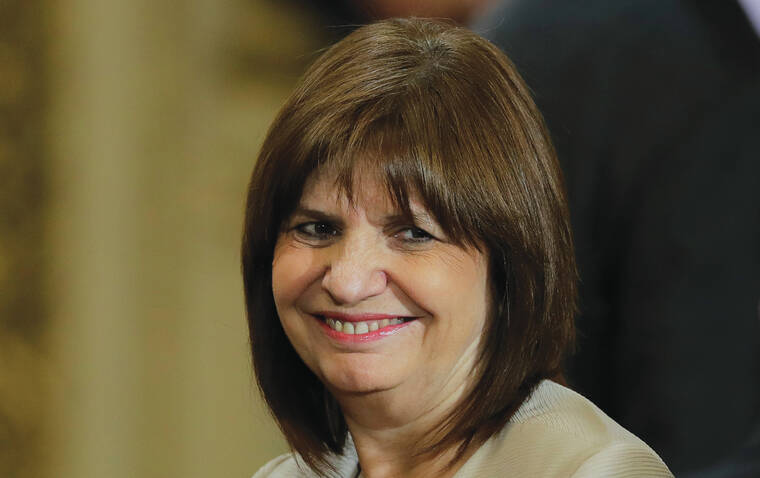As a former Argentine security minister, Patricia Bullrich is best known for her record of cracking down on drugs and violent crime. Now she’s trying to convert that steely reputation into votes for the presidency of a country on the edge of an economic precipice.
With Argentina sinking deeper into turmoil as annual inflation exceeds 100% and its currency tumbles in value, Bullrich says the nation is crying out for her kind of hard-line approach to address its spiraling challenges. Polling suggests voters might agree.
“Argentina needs change,” Bullrich, 66, said in an interview in her Buenos Aires campaign headquarters overlooking the historic Plaza de Mayo square, just a block from the presidential palace. “It needs a change in culture, from populism to a rules-based capitalism. That will demand a strong character.”
She is one of two main candidates vying to represent the opposition Juntos por el Cambio coalition in October elections that polls all say will be calamitous for the ruling Peronist party, opening the path to a change of government. With Argentina already in receipt of a $44 billion International Monetary Fund program that’s been unable to halt its slide, the political outlook is as volatile as the economic and financial one, threatening more turbulence ahead.
Against that backdrop, Bullrich’s tough tone helps to differentiate her, and not simply because security is among the top issues for voters, said Juan Germano, director of pollster Isonomia.
Argentines are used to uncertainty, but the present moment is especially precarious. The economy is nosediving into a recession as persistent triple-digit inflation wipes out wages. To compound matters, a record drought has destroyed precious crops such as corn, soybeans and wheat that provide essential export dollars.
Such is the carnage that the Peronist ticket remains blank so far, after both President Alberto Fernandez and Vice President Cristina Fernandez de Kirchner said they won’t contest the election. A firebrand outsider, Javier Milei, is making inroads with a tear-it-all-down platform keyed to the relentless stream of bad news.
Some analysts see her as the answer for voters who can’t stomach Milei’s antics, won’t countenance the Peronists and are impatient with the carefully choreographed, consensus-building approach of her main rival, two-time Buenos Aires city mayor Horacio Rodriguez Larreta. And while Bullrich and Milei are tapping the same well of disaffection, she stresses respect for institutions and the rule of law.
To counter an economic crisis she says is “getting out of hand,” Bullrich proposes unwinding currency controls she sees as a key culprit of the country’s woes.



